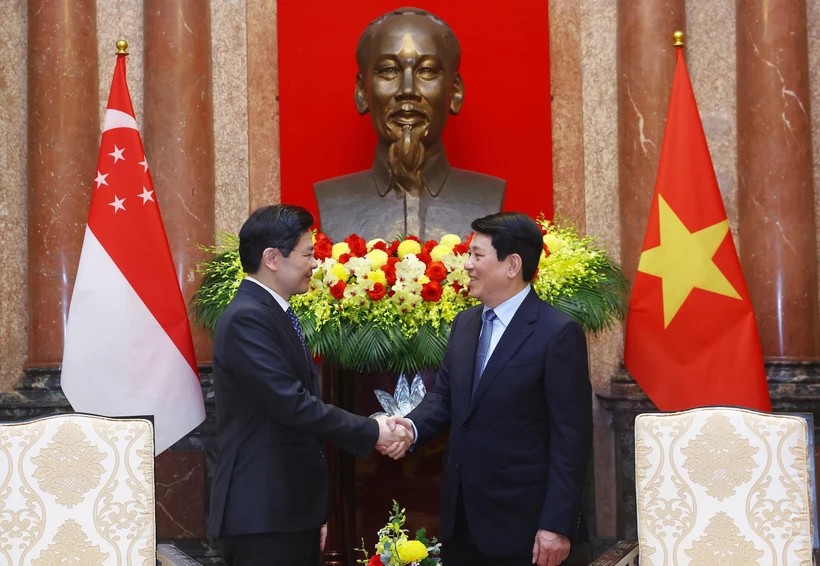Southeast Asia Startups Turn Plastic Waste into Consumer Goods
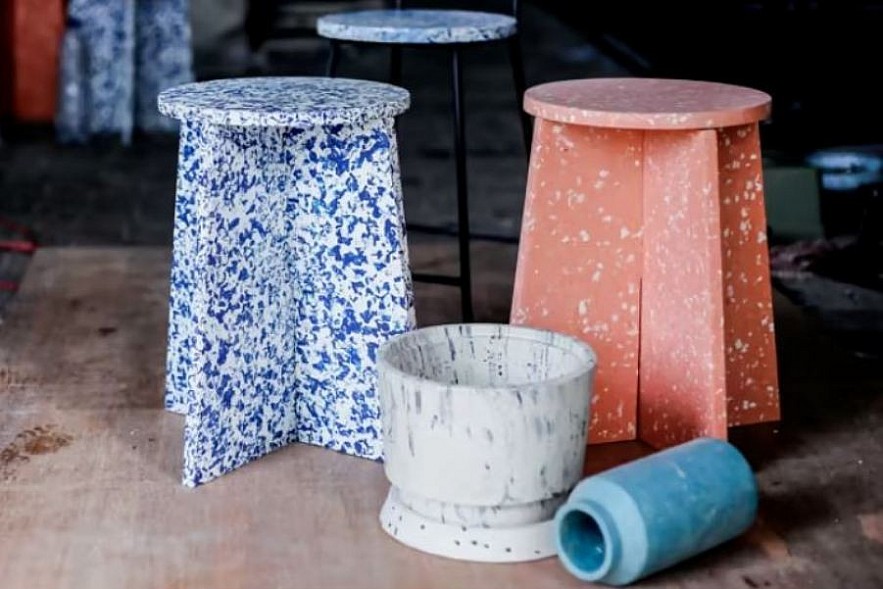 |
| Products are made from recycled plastic by Indonesian startup Robries. Photo: Incubation Network |
Recycle plastic waste to produce furniture
As a child, Syukriyatun Niamah was encouraged by her father to explore the beauty of Indonesia by camping and climbing. What she remembers was pollution: plastic waste strewn about in the open.
Although Indonesia, the most populous country in ASEAN, possesses tourist gems such as the idyllic resort island of Bali, discarded waste, a consequence of rapid economic development, has taken the shine off its otherwise attractive landscapes. Plastic litter floods some of Indonesia's rivers and sometimes clogs waterways.
Those experiences prompted Niamah, now 28, to found Robries, a startup whose mission is to reduce the amount of plastic waste that ends up in the oceans by turning them into furniture and home accessories such as tables and chairs, cutting boards, vases, and drawers.
“Indonesia is a beautiful country but there is a lot of waste in the environment. When I was in college, I saw the problem of plastic waste becoming more serious."
The young entrepreneur studied product design before founding Robries in 2018. She applied her skills to experimenting with recycling processes that turn plastic waste into useful products.
The plastic waste that is recycled and used to produce everything from tables and chairs to brightly colored vases is the fruit of Niamah's research which can be seen on Robries' website. Her company is selling a chair made entirely of recycled plastic for 626,000 Indonesian rupiahs (US$41), while a set of four plastic coasters costs only 150,000 rupiahs (nearly US$10).
“We are looking to enter the global market. We will also soon introduce our products throughout Indonesia to educate and encourage more people to join us in the zero-waste movement,” said Niamah.
Her company is seeking a US$250,000 Series B funding round to fund a project to recycle four types of plastic waste: polypropylene, high-density polyethylene, low-density polyethylene, and high-impact polystyrene.
Niamah said: “We are planning to expand our recycling capacity through better systems and more efficient processes. By bringing a new perspective on plastic waste, I hope to make people rethink their consumption behavior”.
| Plastic waste remains a problem in Southeast Asia, where takeaway drinks from hot coffee to tea are often served in plastic cups and many street vendors use plastic packaging to wrap their food. Recently, some businesses have turned to paper straws, wooden utensils, and biodegradable containers. However, they are only a fraction of those who are using plastic packaging that is difficult to decompose after being thrown away. “Compared to the rest of the world, South Asia and Southeast Asia use disposable plastic products more due to their low cost and convenience,” said Prak Kodali, CEO and co-founder of pFibre (Singapore), a startup that uses biodegradable plant-based ingredients to produce packaging. |
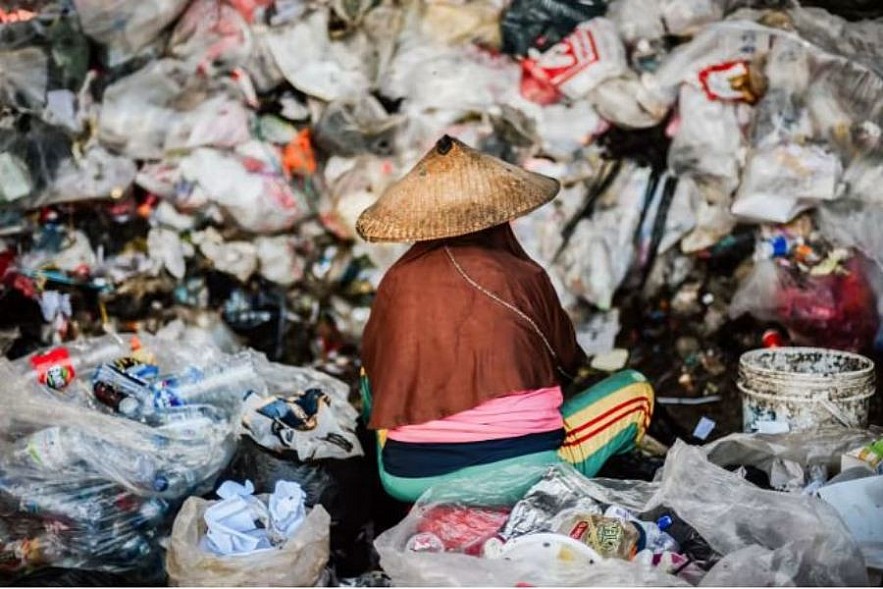 |
| Plastic pollution is an increasingly critical problem for Southeast Asian countries as urbanization and consumption demand in this region accelerate. Photo: Incubation Network |
ReForm Plastic (Vietnam) plans to build 100 plastic recycling factories
ASEAN eco-friendly businesses are looking to promote a “circular economy”. They hope to reduce or eliminate waste as governments and companies in Asia respond to climate change.
In Vietnam, social enterprise ReForm Plastic, based in Da Nang, is franchising technology to help partners in Southeast Asia and abroad process low-value plastics into building materials and other consumer products.
ReForm Plastic converts waste plastic into planks that can be used as the base material for manufacturers to shape into consumer goods, just like with wood, metal or cardboard.
Kasia Weina, co-founder of ReForm Plastic, said that to date, his company has converted more than 500 tons of low-value and non-value plastic into consumer products such as furniture and trash cans.
ReForm Plastic has the capacity to process up to 6,000 tons of plastic waste at eight plants. The company aims to open 100 facilities around the world to process more than 100,000 tons of plastic waste annually by 2030.
Weina said: “We are set up with a model that can scale quickly, with eight facilities under operation or installation in Asia and Africa, including 2 in Myanmar, 2 in Vietnam, 1 in Bangladesh, 1 in the Philippines, 1 in Ghana and 1 in Laos.
By becoming a one-stop-shop for all plastic waste disposal needs, we can create a more positive environmental impact on a larger scale”.
Such efforts are significant because plastic accounts for 80% of the total waste in the world's oceans.
The Circulate Initiative, a non-profit organization campaigning to tackle ocean plastic pollution in South and Southeast Asia, says 11 million tons of plastic waste ends up in the oceans each year, and this number is expected to triple by 2040.
"Plastic can take hundreds of years to break down and emit greenhouse gases in the process. Therefore, stopping plastic pollution in India and Indonesia alone by 2030 would eliminate 150 million tons of greenhouse gas emissions," Circulate Initiative said.
The challenge for startups in this field is that fundraising activities are becoming difficult at a time when investors are hesitant because of global macroeconomic uncertainties, rising interest rates and inflationary pressures. Investment in sustainable companies fell 24% in 2022, to US$159.3 billion, the lowest level in two years, according to data provider Refinitiv.
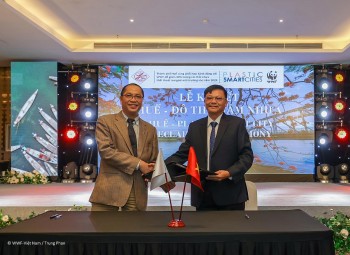 | Hue City Participates in Plastic Smart Cities, Pledging to Reduce 30% of Plastic Waste Hue City (Thua Thien-Hue province) has became the 7th City of Vietnam and the 32nd in the world to participate in the Plastic Smart Cities ... |
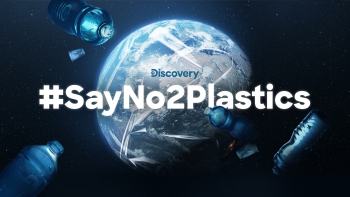 | Discovery Southeast Asia's #SayNo2Plastics campaign for Earth Day Discovery Southeast Asia, together with Greenpeace Southeast Asia, launches the #SayNo2Plastics campaign for Earth Day 2022. The challenge calls on fans and on Eco-Warriors across ... |
| Crushing Single-Use Plastic With Bubbles Refillery Vending Machines A study by Plastic Ocean stated we are producing 380 million tonnes of plastic yearly, and some report indicates that up to 50% of that ... |

